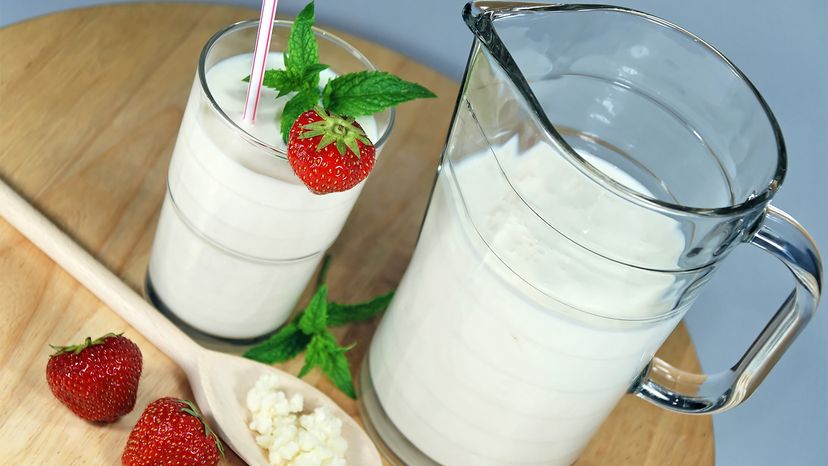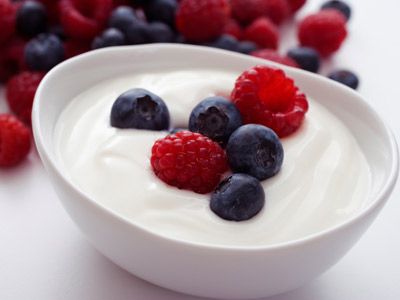Kefir is believed to have originated in the Caucasus Mountains, a region at the border of Europe and Asia. "Today, the largest kefir producers in the world are Russia and Poland, as well as Sweden, Norway, Finland and Germany," says dietitian and nutrition expert Paulina Nowak in an email interview. "Interest is still growing in the United States and Japan."
Kefir, from its beginnings until now, is most often produced from cow, goat or sheep milk. "However, it can also be produced on the basis of plant-based beverages, such as coconut, soya or rice milk, using fruit juices and water," she says.
When made from animal milk, kefir has the consistency of drinkable yogurt with mild carbonation. Which makes sense, considering that while yogurt is the result of fermented milk bacteria, kefir is made from a combination of yeast and the product of bacteria fermentation known as "kefir grains." Don't get these confused with actual grain like wheat or rice, however. Kefir grains are a concentrated starter for making this "live" drink known for its medicinal properties.
"Kefir contains the probiotic strains lactobacillus acidophilus, bifidobacterium bifidum, lactobacillus kefiranofaciens, lactobacillus helveticus and more," says Loren Richter, CEO and founder of nutritional supplement manufacturer BlueBiology, in an email interview. "Each probiotic strain provides the body with its own benefits."
These probiotics are thought of as "good bacteria" similar to those that are naturally found in the digestive tract. "This means that kefir is good for gut health because it supports and helps to increase healthy bacteria and prevent harmful bacteria from growing," says Melissa Hooper, dietitian and founder of the nutritional therapy company Bite-Size Nutrition, in an email exchange.
Kefir may be especially helpful for people with long-term antibiotic use since it will help rebuild the good bacteria that may be reduced by the antibiotics, and it may aid those with digestive issues such as irritable bowel syndrome, ulcers and even temporary cases of diarrhea.
And, because most of the lactose is removed during kefir's fermentation process, the drink often can be tolerated by people who otherwise have trouble digesting milk products. "Although it can be made from milk, it's low in lactose, but is high in probiotics, such as lactobacillus," said Hooper. "In fact, kefir is considered to be more potent in probiotic strength than yogurt."
Kefir also is a good source of nutrients. An 8-ounce (29-milliliter) cup of plain, low-fat kefir has 11 grams of protein and is just 110 calories. It's also high in calcium, phosphorus, vitamin B12, riboflavin, magnesium and vitamin D.



